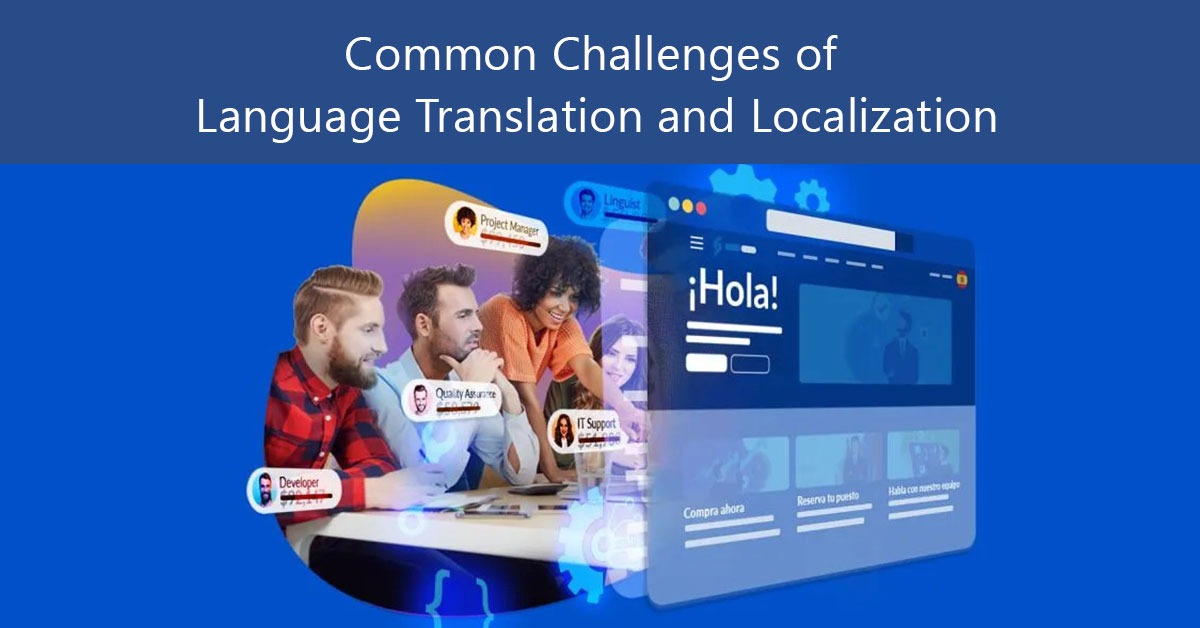
The need for translation and localization has become paramount in an increasingly interconnected world. Whether it's a business expanding into international markets or a content creator aiming to reach a global audience, translation and localization challenges must be considered. This blog explores the common challenges faced in translation and localization and offers insights on how to prepare for them.
Maintaining cultural sensitivity is one of the most fundamental challenges in translation and localization. Languages are intrinsically tied to the cultures they represent, and mistranslations can lead to misunderstanding or outright offensive content. To prepare for this challenge, working with linguists and localization experts with deep cultural knowledge is crucial. They can help you navigate the nuances of idioms, humour, and cultural references that may not have direct equivalents in the target language.
Languages are rife with intricate linguistic nuances, and accurately capturing these subtleties is daunting. Idioms, colloquialisms, and dialects can pose significant challenges for translators. To address this, it's essential to engage experienced linguists who are native speakers of the target language and well-versed in the intricacies of both languages.
Language often relies on contextual cues to convey meaning. The exact words can have vastly different interpretations depending on the context in which they are used. Preparing for this challenge involves providing comprehensive context to the translators, ensuring they understand the source material thoroughly. Moreover, using translation memory tools and termbases can help maintain consistency throughout a project.
For businesses in specialised industries like medicine, law, or engineering, technical jargon is used every day. Translating such terminology accurately and coherently can be exceptionally challenging. To address this, working with translators with expertise in the specific field is imperative. Creating a comprehensive glossary and term bases of technical terms also helps maintain consistency and clarity.
Language is constantly evolving, and slang and expressions emerge regularly. Keeping up with these changes is challenging, especially when targeting younger demographics. Preparing for this challenge requires staying informed about contemporary language trends and engaging with translators attuned to the language fluidity.
In the digital age, SEO (Search Engine Optimization) is crucial for reaching a global audience. However, optimising content for search engines in multiple languages presents unique challenges. To prepare for this, ensure your localization strategy incorporates multilingual SEO expertise. This includes keyword research, meta tags, and content optimization for each target language.
The translation and localization process often involves working with various software tools and platforms. Technical challenges can arise from compatibility issues, file formats, or the intricacies of software localization and internationalisation. To prepare for these challenges, working with experienced localization teams and considering investing in software and tools that facilitate the process is recommended.
Maintaining consistency in content and branding across different platforms and mediums can be a daunting task. Different media, such as websites, mobile apps, and printed materials may require varying levels of localization. To address this challenge, establish clear guidelines and ensure your localization team is well-versed in your brand's identity and style.
Compliance with legal and regulatory requirements is critical, especially in healthcare, finance, and pharmaceuticals. Not being able to meet these standards can result in legal consequences and reputational damage. Prepare for this challenge by working with localization experts specialising in the target market's legal and regulatory landscape.
Translation and localization projects can be resource-intensive in terms of time and money. Preparing for budget and time constraints requires effective project management and the use of technology to streamline processes. Planning for these constraints from the outset is essential to avoid unexpected delays and costs.
Ensuring the quality of translated and localised content is a constant challenge. Inaccurate translations can damage your brand's reputation and hinder your communication with the target audience. Implement rigorous quality assurance processes, including proofreading, editing, and user testing, to address this.
As your business grows and expands into new markets, scalability becomes challenging. How do you ensure your translation and localization efforts keep up with your growth? To prepare for this, consider building a network of reliable localization partners who can scale as per your needs.
Translation and localization present many challenges, from cultural sensitivity to technical constraints. However, by understanding these challenges and preparing for them effectively, you can ensure that your content resonates with your target audience, transcending language barriers and cultural differences. A well-executed localization strategy can be a powerful tool for reaching new markets and expanding your global presence. Language Services Bureau embraces these challenges as opportunities for growth and learning as it is the first step toward successful language translation and localization.
For any queries related to language translation services. Inquire at our email address below or give us a call today!
info@languageservicesbureau.com
Telephone: +91-20-24470509, +91-82370 60559
Similar articles for you...

आमच्या गेल्या महिन्यातील ब्लॉग मध्ये भाषांचे ज्ञान आवश्यक असणाऱ्या करियर क्षेत्रांची माहिती आपल्याला मिळाली. जिथे भाषेचे ज्ञान फायद्याचे ठरते असे इतर व्यवसाय आपण या महिन्यात पाहुयात.

Posted by : Language Services Bureau

The time it takes to learn a language depends on what you want to do with it– here is a great article about language learning and the kind of expectations you can set about the time required for the same!